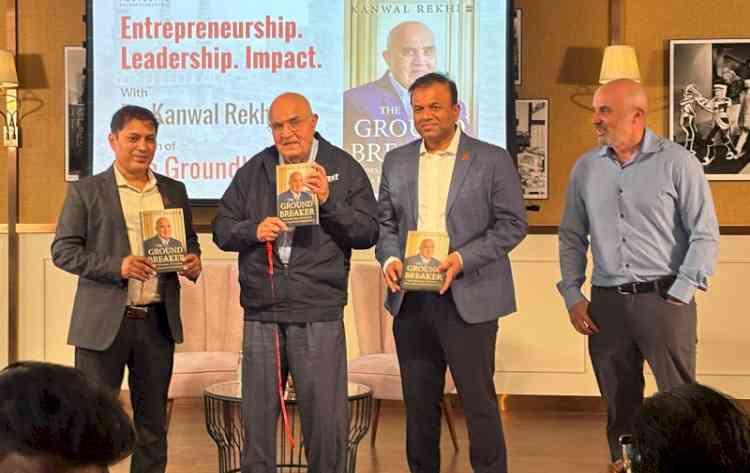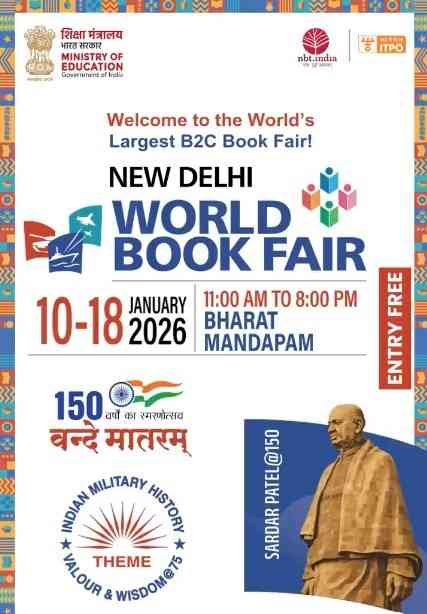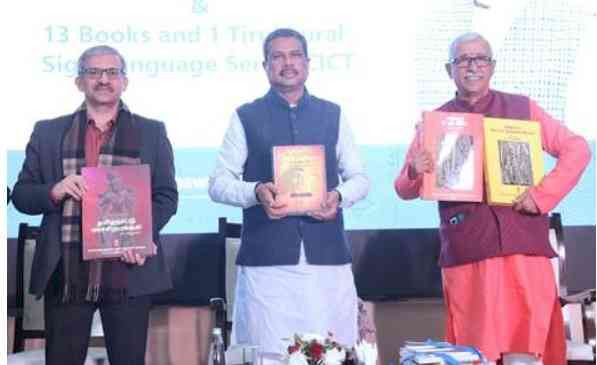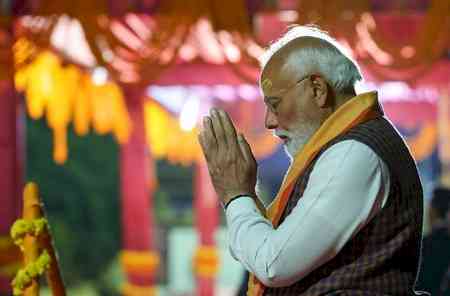“Trade, Not Conflict, Built Panjab” Young Innovator Shaurya Prabh Sharma Launches PANJAB INC, a Landmark Chronicle of Punjab’s Entrepreneurial Legacy
Young author and innovator Shaurya Prabh Sharma officially launched his debut book “PANJAB INC” in Chandigarh on Wednesday, presenting a powerful new narrative of Punjab not as a land defined by conflict but as a civilisation built and sustained by commerce, enterprise and innovation, student’s entrepreneur.

Chandigarh, November 19, 2025: Young author and innovator Shaurya Prabh Sharma officially launched his debut book “PANJAB INC” in Chandigarh on Wednesday, presenting a powerful new narrative of Punjab not as a land defined by conflict but as a civilisation built and sustained by commerce, enterprise and innovation, student’s entrepreneur.
At just 18 years of age, Shaurya traces the region’s business history from the 9th century to the modern day, arguing that the driving force behind Punjab’s resilience has always been trade not war. The book highlights how commercial networks endured through periods of upheaval and how the same spirit continues to define the global Punjabi footprint today.
Shaurya has been a keen observer of national and global economic developments since childhood. A regular newspaper reader since grade five and a participant in multiple business forums, he brings both academic curiosity and grassroots entrepreneurial experience to his debut work. He holds a design patent for a plastic incinerator and is the founder and director of ROOT RICH, a venture he launched during his school years that later grew into an independent company.
Speaking at the launch, Shaurya said that Punjab’s economic history has been long overshadowed by dramatic events, even though trade networks continued to function remarkably through periods of instability.
“Look closer and you will see that even in moments of despair, trade thrived,” he said. “History remembers the battles but overlooks the bazaars. PANJAB INC is about a mindset of courage, creativity and community. Trade, not conflict, built Panjab.”
The book highlights how commerce shaped Punjab’s social and political life across centuries. A major section revisits the reign of Maharaja Ranjit Singh, portraying him not just as a military strategist but as a ruler who understood that long-term peace depended on economic stability.
“Governance was never just about armies or fortresses,” Shaurya mentioned. “It was about building an architecture of commerce.”
The book explains how Singh’s administration protected and empowered merchants and artisans, enabling safe and predictable trade across regions.
The continuity of business culture from Multan’s indigo and Amritsar’s shawls to Ludhiana’s bicycles, forms a central theme of the book. Shaurya connects this legacy to today’s global Punjabi enterprise visible in renewable-energy firms in Chandigarh, retail chains in Delhi, trucking companies in California and tech ventures in Toronto.
The book also focuses on the rise of regional newspapers and the business leaders who founded them, situating print media within Panjab’s broader commercial landscape. He said the book identifies a set of recurring values that have shaped Punjabi business culture: reinvestment, resilience, hospitality and honour, anchored by a belief that “tomorrow will bring another harvest, another customer, another chance”.
According to author, these values formed an “invisible inheritance” that Punjabi migrants carried with them across continents, shaping success stories from family-owned neighbourhood stores to internationally recognised corporations.
“Panjab does not teach you how to do business; it teaches you how to live business,” he added.
Shaurya dedicates PANJAB INC to both known and unknown entrepreneurs from craftsmen, farmers, traders and publishers to modern industrialists and the Punjabi diaspora, whose contribution turned Punjab from a regional market into a global commercial network.
“This book is your mirror,” he said. “The story of Panjab’s enterprise is not distant; it remains alive in each of us.”


 City Air News
City Air News 









